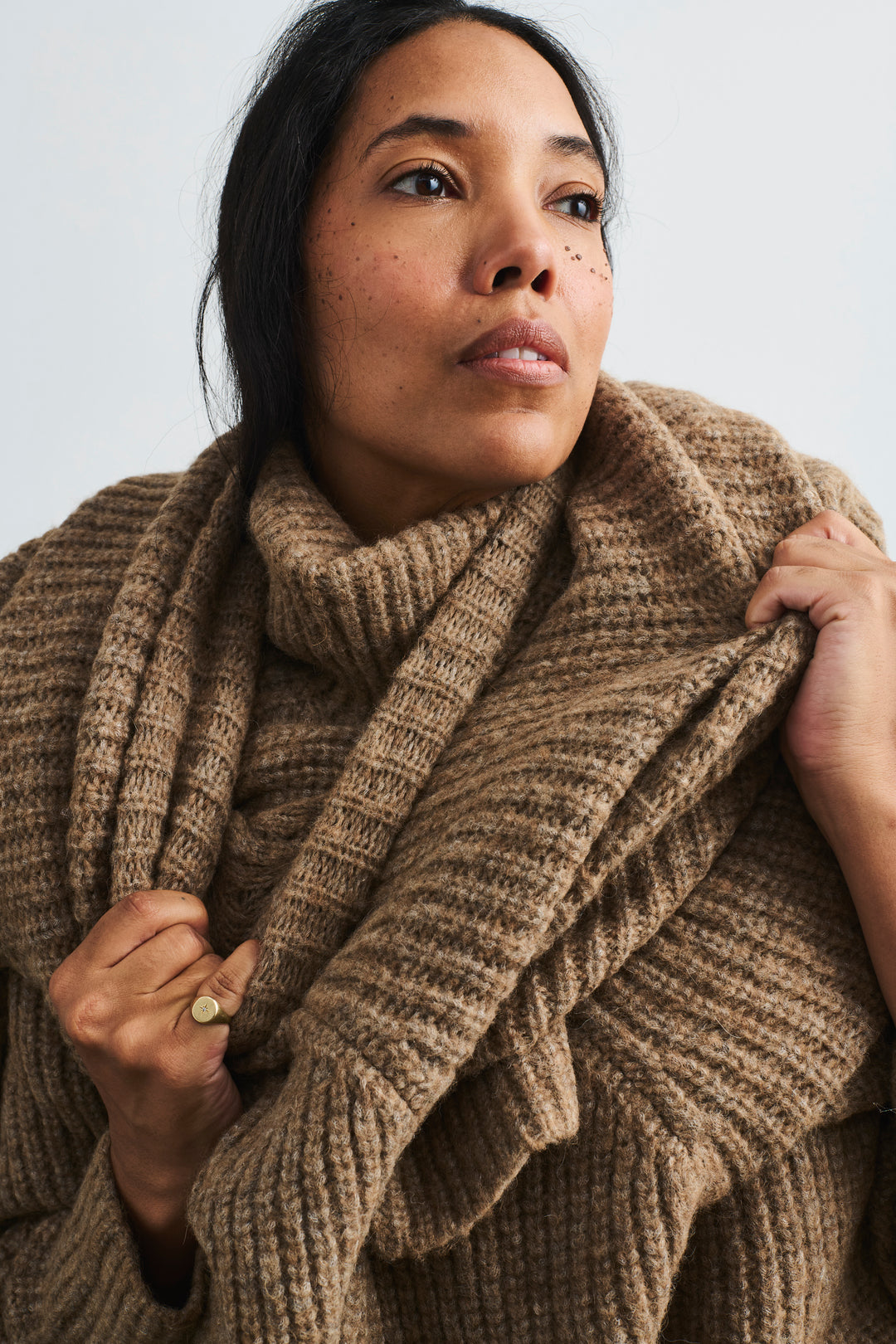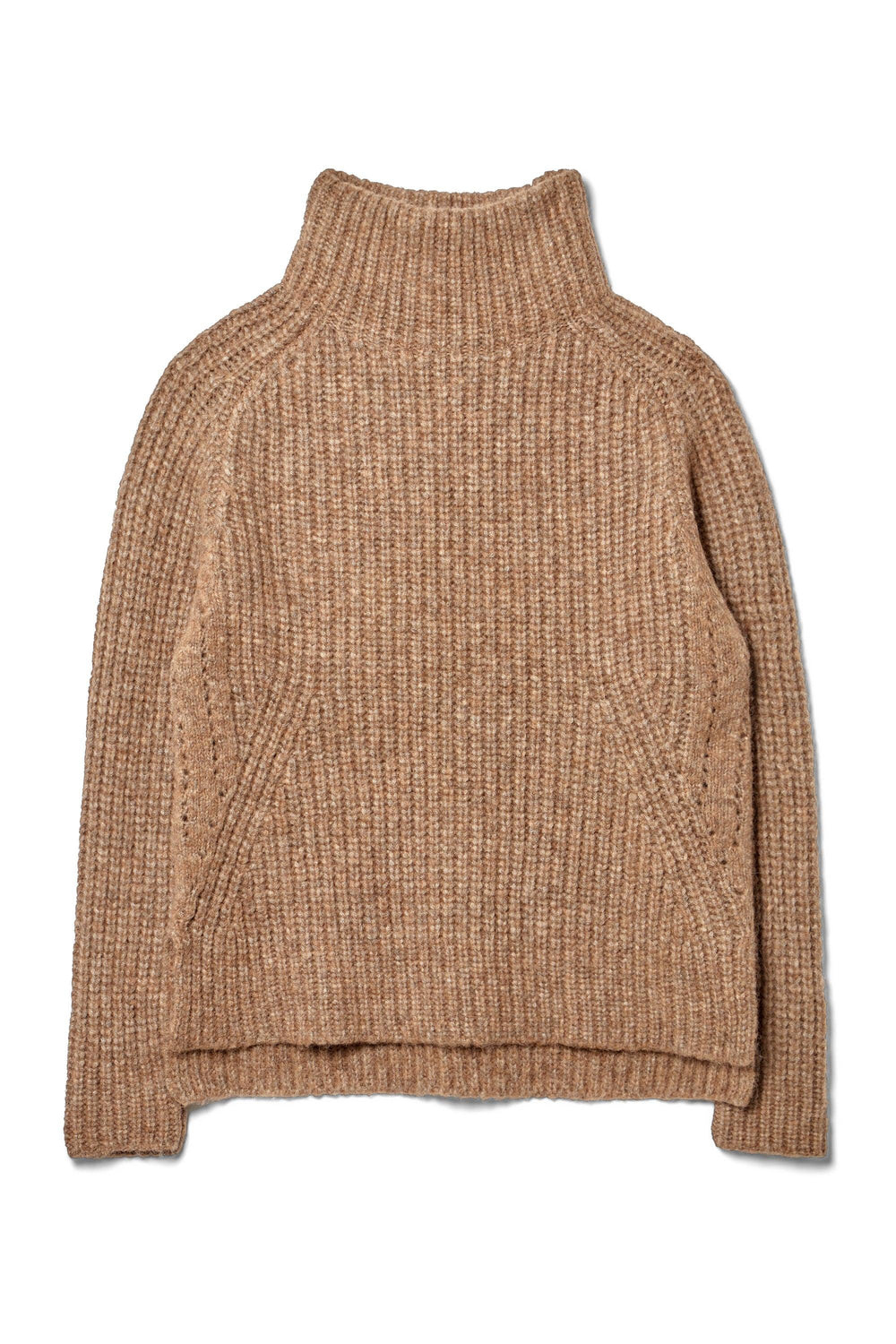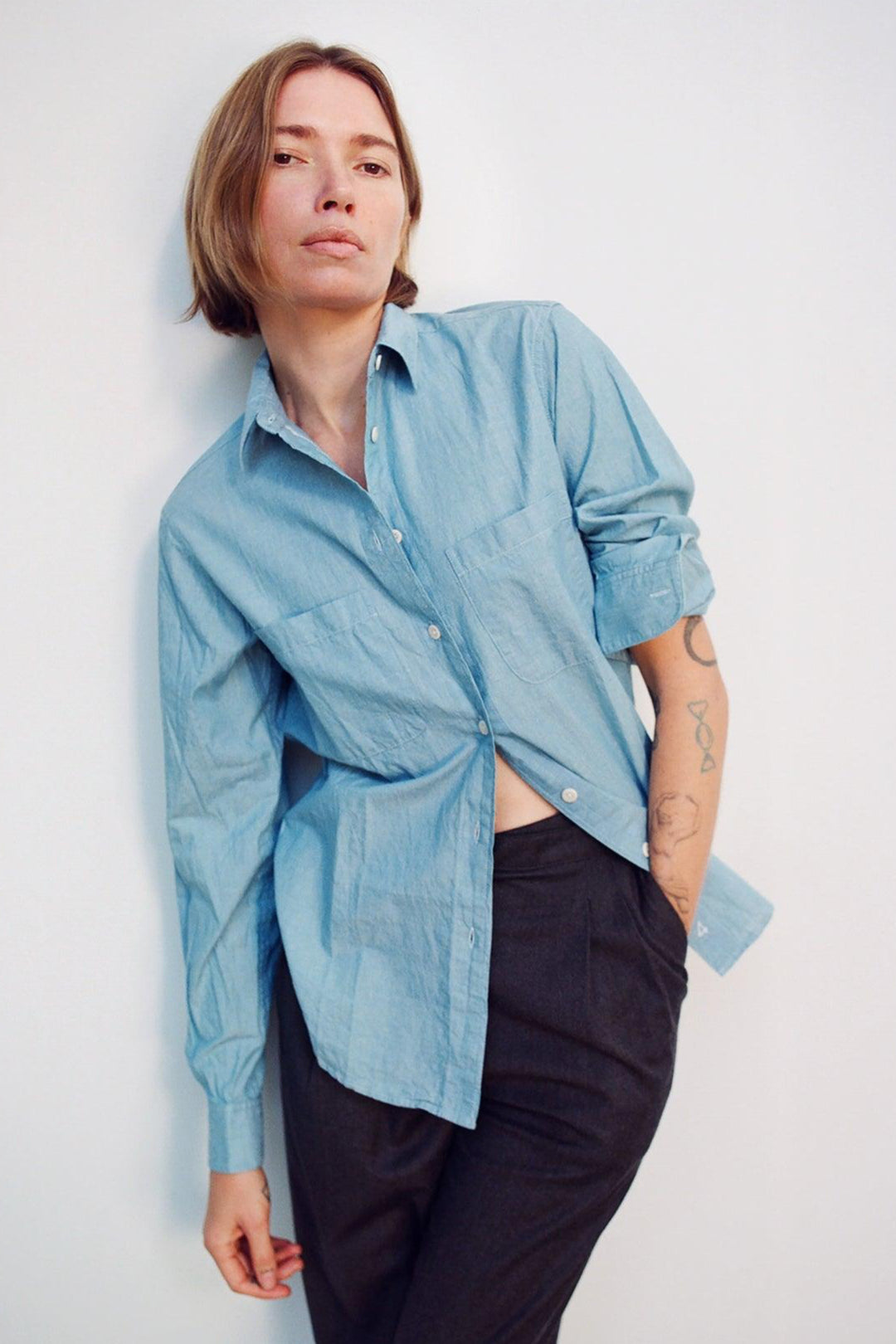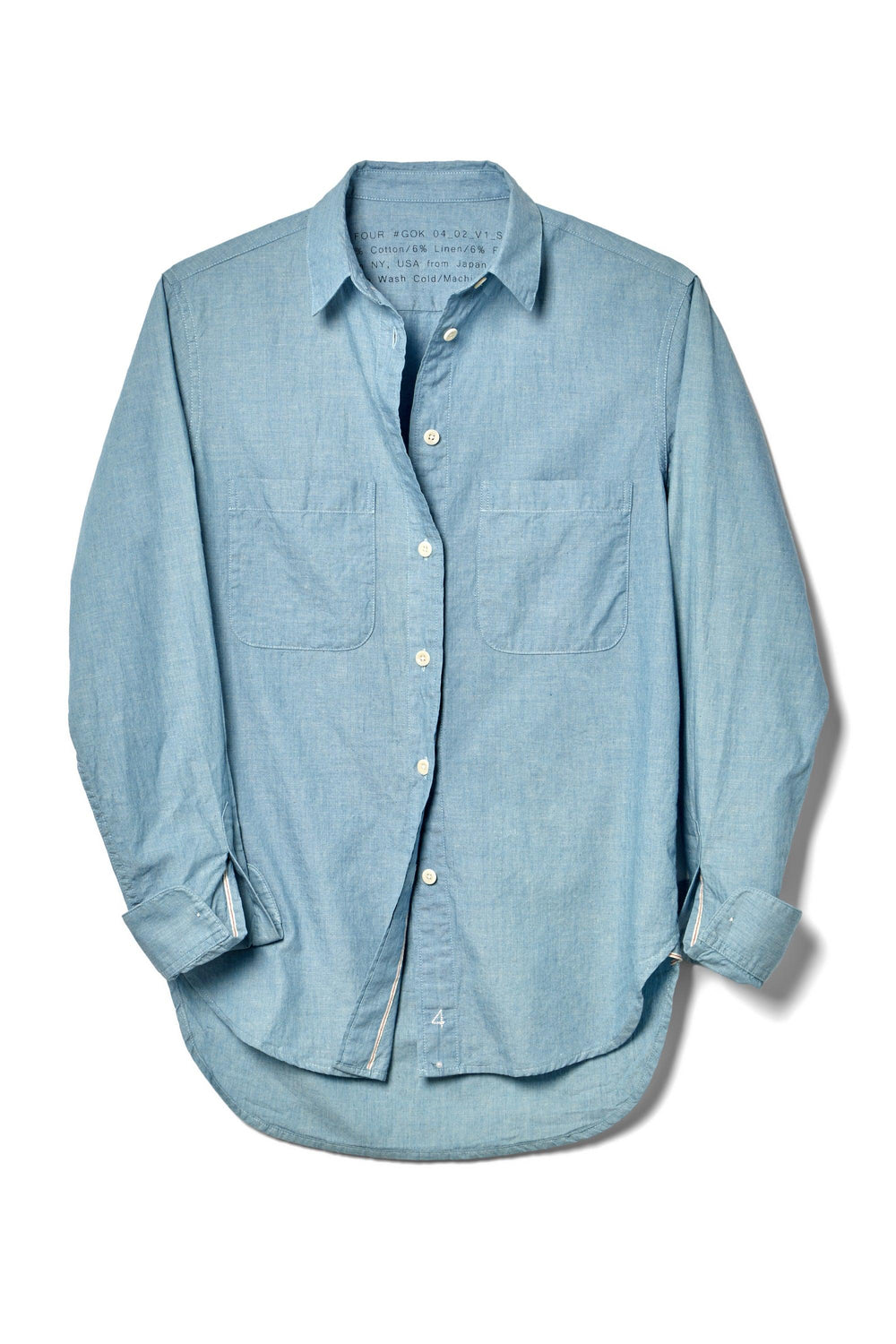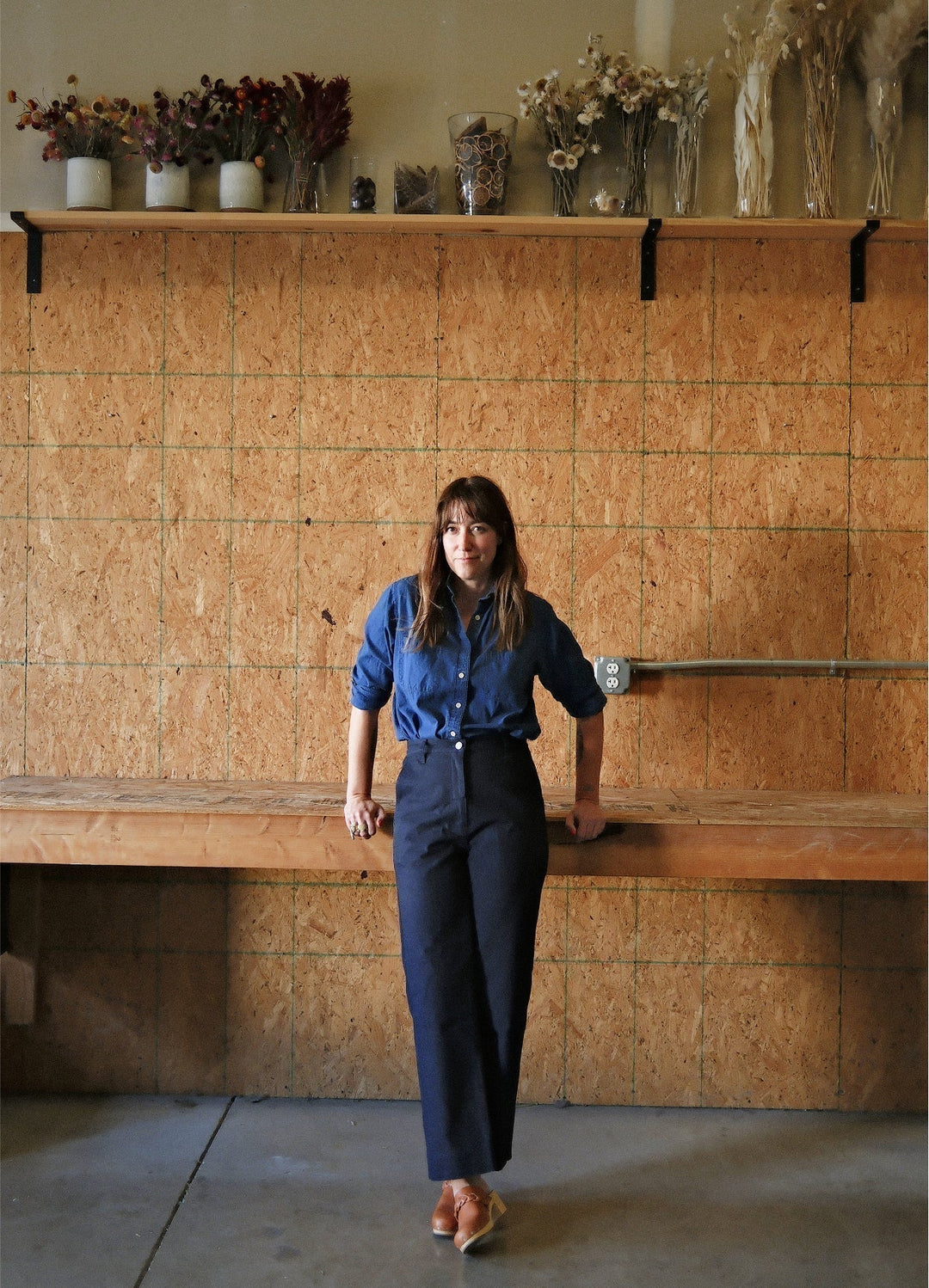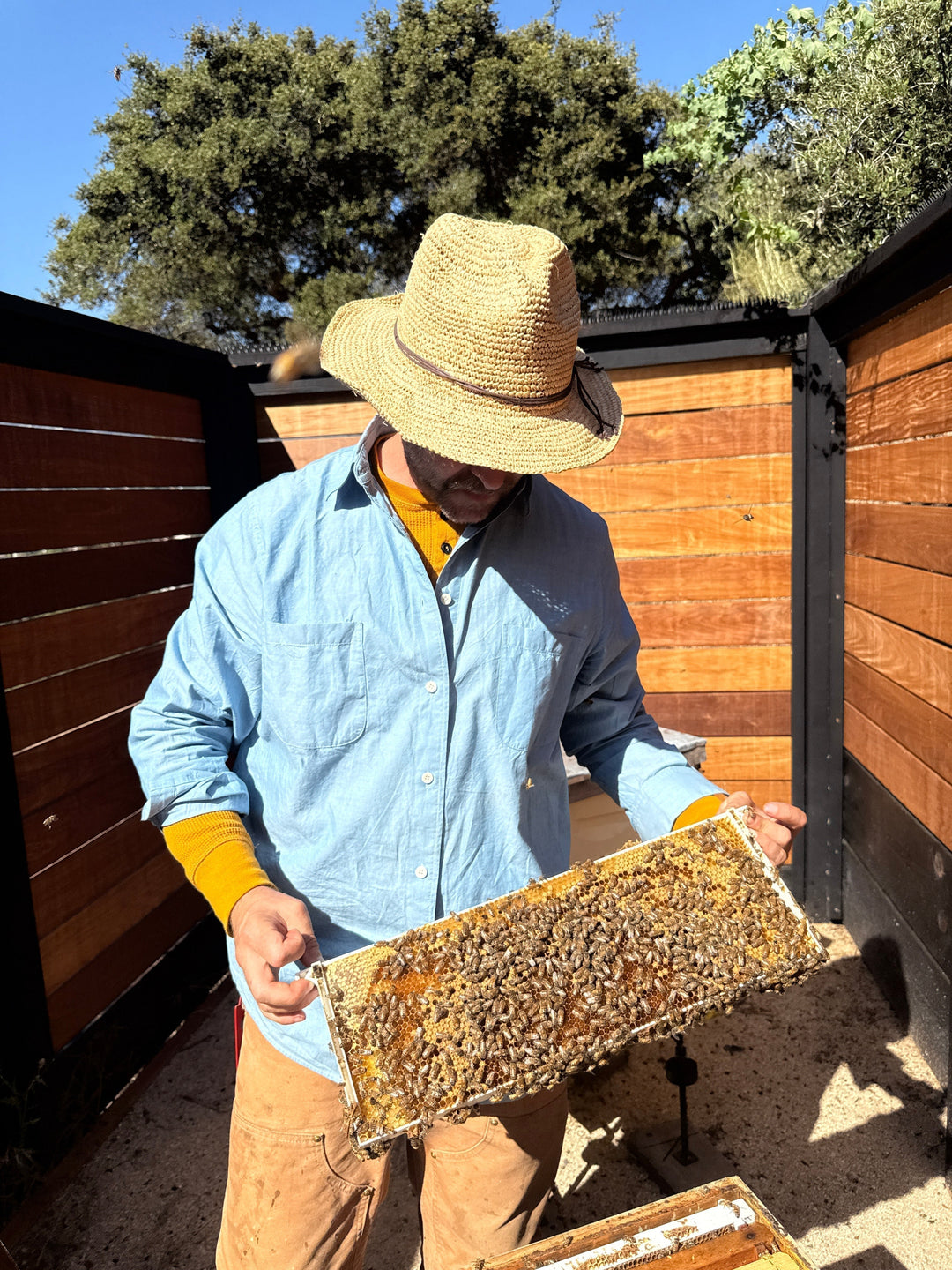Celebrities2Us: Pashon Murray
Meet Pashon Murray, the thinker and doer behind Detroit Dirt. Pashon is working on the energy transition away from fossil fuels while keeping her focus on the development of technology that can bridge the gap between small companies and big change.

Co-Founder, Mae Fatto met up with Pashon in Central Park while she was in NY for a Bloomberg conference. The interview below was conducted online for ease of editing.
Mae Fatto: When Ku and I were thinking of ways to honor International Women's Month, we had a laundry list of incredible womxn who inspire us. We thought there’s all of these amazing humans making and doing such meaningful work and then it seemed obvious, let's just send them a Work Shirt. Just to say, hey, we see you, we love what you're doing, keep doing it. So, thank you for being in the world and agreeing to share some of yourself with us.
Pashon Murray: I think so many of us who are small in this space and we're trying to establish and keep building and sustaining what we have, whatever that may be, and I think that it's imperative because there are more of us who are out here than we know. But to your point about making connections with others, you don't really think about it until you have to do that. And for me, it's been just invitations or conversations like I'm having with you where people reach out and they're like, "Hey, we're working on this project or, we have this podcast. We want to know if you can help."
And then with the major corporations, a friend of mine had an event with Deloitte on Impact Day last week and that turned into them asking if I could come and speak quarterly and talk to them about supply chain and being more efficient and how they can manage their resources more efficiently. And I was like, yeah. My attorney just happened to be in town and he started asking them a million questions. It was just funny because he just kind of walked up and started talking and at the end he was like, "This is why we need your brand." He has his own small business but he is also an attorney working for a major firm but we can all relate to one another when it comes to establishment and trying to build. So that's what I've been doing for the most part, just trying to leverage relationships that all align with the greater mission. We have to start supporting the brands that, are supporting the mission that align with the mission, and that's the key with starting this journey with FOUR, you represent a component of the mission.


Mae Fatto: Yeah, we’re just one small piece. And on that note I wanted to introduce you to our very mindful audience. We want the larger FOUR community to know who Pashon is! So tell us how you came to work in sustainability.
Pashon Murray: There's a tapestry here, I think it's a little bit more layered for me, but I always go to the root of it, right? My family having a farm and having land in Mississippi and being exposed to agriculture as a young child, watching my grandfather out on the pastures and taking these breaks throughout the school year and for summer break, and with my parents and I, our bond has everything to do with why I see things a certain way and why I've been dedicated to this mission. But I would have to acknowledge my grandparents and Mississippi, having those roots. It just takes me back to the journey that we would be on driving from Michigan. It was imperative for us to take that drive from Michigan, maybe visit family in Memphis and then hit Mississippi and stay down there for a while. But it was the blues. It was the music. It was watching my family eat from the earth. It was the canning, just sustaining in life all together. That had one impact. I think there's two pivotal things that happened to me along the way when I was young. One is, jumping in and out of trucks with my dad when he would take trips to the landfill. Watching him cuz he had these contracts with the city and the county for snow plowing, waste removal, recycling, interior demolition. And so growing up, outside in the elements, he was just known as someone in the community that was like cleaning up things and keeping everything.
I would say from a city and county perspective, just making sure that he kept those contracts as a priority, not just to be doing something as a service-based company, but the work that he did. It was like the before and after pictures that he would take of these huge interstates and lots that he would cut, trees, the landscaping, all of that. From an environmental perspective, it was influencing me without me even really acknowledging that as a young child. But later on in life, when I graduated and moved back from Texas from undergrad, Grand Rapids was investing hundreds of millions of dollars in green building. And I had never heard of this term sustainability from an environmental perspective only economic. So when I came back to Grand Rapids, I was exposed to my friend's parents and how along with other influential and powerful families in the community they were strategizing on how to create and all of these LEED certified buildings. They were having all these meetings with architects and designers talking about how they were going to restore buildings, how they were going to innovate with thermal green building practices and when it came to the materials management side, they wanted to measure and monitor every choice because they were on a point system and I had never heard of that before. As I was growing up, with my dad, cleaning up and trying to give families furniture or things that he would come across in his hauling business, but it was never to that degree. And that was actually what introduced me to the world of sustainability. That was the actual beginning, a foundation in Grand Rapids had exposed me to green building and its practices. Which led to lobbying, consulting, and eventually Detroit Dirt because when I moved to Detroit there were all of these urban farmers and resources were limited and I was just trying to take my background and the knowledge that I had as I was commuting back and forth to Grand Rapids to Detroit. How could I be a solution or how do I impact the carbon footprint of Detroit? And that's really how Detroit Dirt was created, I was looking for the voids and gaps in the automotive community. They were already pushing zero waste policies because they wanted to conserve materials globally.
So it just happened, the stars aligned spiritually and I was like okay I can work with the automotive community, stakeholders in the community and assist and support urban farming and that in a nutshell is basically my background, my journey, the alignment.

Mae Fatto: That’s amazing. What is your current relationship to the urban farming community in Detroit?
Pashon Murray: So the reason why I committed to University of Michigan, this urban sustainability and justice, it's like an energy justice fellowship. U of M would like to align with organizations and small businesses and urban farmers in the community so we can provide them with technical assistance, guidance around sustainability. The core of the work is circular economy. I have it all. I have relationships with urban farmers and some of them now refer to me as the OG. It’s a beautiful movement because across the country we’re all working on advocacy, environmental justice, urban agriculture. I'm so grateful, the gratitude of how they see me in the community, but I'm also inspired by the younger urban farmers because they are giving me this respect, “you paved the way for us” and for some of them I”m why the were drawn to Detroit.
So, it's bigger than me, which touches my heart because recently with the fellowship program we're going to be able to work with urban farmers and other small businesses in the community and with the city so we can help them with their guidelines and their goals around sustainability. So, it's a beautiful relationship.
Mae Fatto: Are you part of any CSAs or anything in Detroit or do you do the rounds at farmers markets?
Pashon Murray: I go to the farmers market every Saturday because we have one of the largest in the country. It's like we have four or five sheds with 60 to 100 farmers and growers. And the Eastern Market is massive. And it's so like when people come here in the spring or summers you've got to experience this because it's a region of farmers coming from anywhere from 150 to 200 miles to 30 miles outside the city and…they're all selling and so that's where I get all of my produce, just everything. I know the folks and the board members and advisors over Eastern Market. Detroit it's a decent sized city, but it's kind of like a small town at the same time.

Mae Fatto: I think any place you come to love can feel like that, even New York feels like a small town to me after living here for over 30 years. When I was growing up the first thing my family did was find the church because if they were going to be visiting over a Sunday they had to find their people. I’m not religious but I’m devout when it comes to food communities, so when we travel the first thing we do is find out where the farmers market is because we know that's going to be the intersection of our wider interests. Where we get our inside information on a place; we can build a whole itinerary with a single visit to the farmer’s market. Swimming holes, farm to table restaurants, local wines & brews, regional arts & crafts, it's all there. For me it's an entry point for sustainability on so many levels of manufacturing and supply chain. If you literally just go in and listen and openly admire what you love. It's such a beautiful way of relating to the world. Stores aren't inherently bad, but there's a middleman and so much overhead and the transaction is generally more important than the interaction and that's not true at a farmers market which is so sweet.
Pashon Murray: Yes, yes, it's awesome. I'm with you on the social engagement. That's the beauty of the farmers market and everybody's excited to sell you something at a decent price that's good for you.
Mae Fatto: I love that growers are psyched about the high quality of their thing. One can get into these deep conversations and I'm convinced things taste better. It's like that when Collectors come to our Fit Parties, they try on clothes and ask us questions about the design and the fabric and then when they're wearing it there's meaning behind the object they’ve put on their body. Like our vestiges story, people know it was once considered waste, destined for landfill. But we see value in these scraps. It’s not waste, it’s beautifully woven vestige cloth from Japan. There's a story, which is always already there for everything we buy, but we don't have access to the stories, or they're hidden because they're not good stories so they're deliberately obscured, but yeah,…
Pashon Murray: Wait, did you just say just this fabric was in a warehouse? A leftover?
Mae Fatto: Yeah, that shirt you're wearing is Japanese dead stock. I was in the NY showroom one day and on my way out I passed a display of beautiful shirts that’s I’d passed a dozen times before but it seemed to grow year after year. They explained that they made a shirt of each of their fabrics so there was a tangible record rather than a dated pile of swatches in storage. I asked what the mills did with the remnants and they said it just gets shipped to warehouses and is eventually destroyed. It was like a lightbulb went off. It's evolved into an aspect of trend for us, a meaningful way to engage in novelty while saving something something at the same time.
Pashon Murray: Wow, that's amazing. Yeah, that just gave me more perspective, insight. That's great. I love this shirt. I'm with you on the long sleeves all year round.
Mae Fatto: I think the only other question I wanted to ask is about the present and the future, you mentioned the fellowship earlier… what are you working on and where are you going?
Pashon Murray: I have one foot at University of Michigan and their School of Environment and Sustainability. It's a small school but it's known and U of M has always been in the top 20 when it comes to climate energy and sustainability. But I also have a research project with Michigan State Biosystems and Forestry. I wanted to bring the two rival schools together. One represents agriculture because MSU is a land grant school. So they do a lot with agriculture and then U of M is known for their business school. So the goal is really to develop markets around biomass material whether it's forestry stuff or harvest from farms and yard waste or whether it's food waste that comes from an urban community. The conversation started years ago with another professor. We were talking about our experiences. He's like, " you represent a lot of small businesses across the country that have these materials and you're either composting or making biochars. You're doing these specific things with it. And then there are people like me who are professors who are working with certain tech on a small scale in a lab.” And so as we began to have a conversation, there was this engagement with each other where these light bulbs were going off. It was like, “okay the technology you’re developing to break down materials in the lab is essentially what I would like to do commercially. I’d like to scale this and replicate the model from a regional perspective. How do we look at logistics improvement around businesses like Detroit Dirt? If you're collecting yard waste or food waste or oil, whatever the material may be, we need to start documenting that data and start creating pathways from a logistics perspective, how do we get more people involved in a network where we can develop markets such as, composted biochars or cleaner sources of fuel. Because at the end of the day, you have people talking about infrastructure around EVs and whatnot and that's great. But I always say that in transition what about the materials that are going to the landfill that are forgotten about, things that are lowhanging fruit? And so my objective was we're not going to fly a electric plane from Detroit to Tokyo in the next five or six years because they haven't figured that out as of yet. But what we can do is have certain technologies that will help us break this material down such as pyrolysis and other tech that can eliminate the greenhouse gases from escaping from a landfill by containing it with technology while also creating these ecoindustrial hubs where the material is coming from. It's natural. Some of us want to make compost, some of us want to make energy with it, some of us want to make cleaner sources of fuel. I just got tired of attending conferences where everything was about the s* of sustainability. It was like, yeah, we need to build this infrastructure for EV and solar, but it's like why won't you look at cleaner sources of fuels or biofuels so we can still sustain the cars? Everybody's not going to be able to afford an electric vehicle. We have to be realistic about our stages of how we transition. I looked at the gaps and the voids in the energy transition and after two years of submitting proposals to the federal government, the USDA which is one of their agricultural arms NEFA, saw this as a great opportunity because Department of Energy and the US Department of Agriculture were the two groups who understood what our philosophy and theories are. From DOE they need logistics improvement around these materials but we want innovation around what you think we should be doing with this. My vision was if we could build a model that people could walk up to and actually see this technologies and that they're more efficient. It's not something that is going to harm the community, but we could essentially set up these models at airports to show how we could create sources of fuel. We could work with utility companies. The innovation in the interim or within the transition. There are other small companies out here that can build apps. There's so many things that can be done with this vision around how we can use materials more efficiently just like a company dealing with certain materials there are people in agriculture who are looking for solutions as well because it's like I don't want to send this to the landfill but if I do this to another company or work or create a contract where we know these materials are going to be managed more properly that is…where we want to take this. Working with stakeholders and small businesses to help them with their sustainable goals guidelines working making that connection with the city and the county because policies are starting to change on a local and state level. So that's where we come in with the fellowship.
So I have kind of multiple roles. the research team I'm very proud because I feel like we have something that we can build on. We're supported for the next three years with that research.
But the fellowship, we're the first group to work with Dr. Tony Re. And Tony is just a great guy. He worked in the Biden administration with DOE. And I'm just working with, just to bring this to a conclusion, whether it's fashion, energy, cleaner sources of fuel, composters, urban farmers, I'm just walking the walk. You know what I Yeah, I'm living it. And so companies like yours are a reflection of me and an extension of my mission. And that's critical. I feel like this is the first time in my life where I can actually wear some clothes, drive a vehicle, and wear some skin care that's sustainable. You know what I'm saying? Like everything.
Mae Fatto: Yeah, we’re living in a time when we can make very informed decisions and literally put our money where our mouth is. That is no small thing politically.
Pashon Murray: It's amazing.
Mae Fatto: Tell us some of your recommendations.

Pashon's Passions
I also admire Dov Seidman’s "How" How: Why How We Do Anything Means Everything
Shop Pashon's favorites below:







